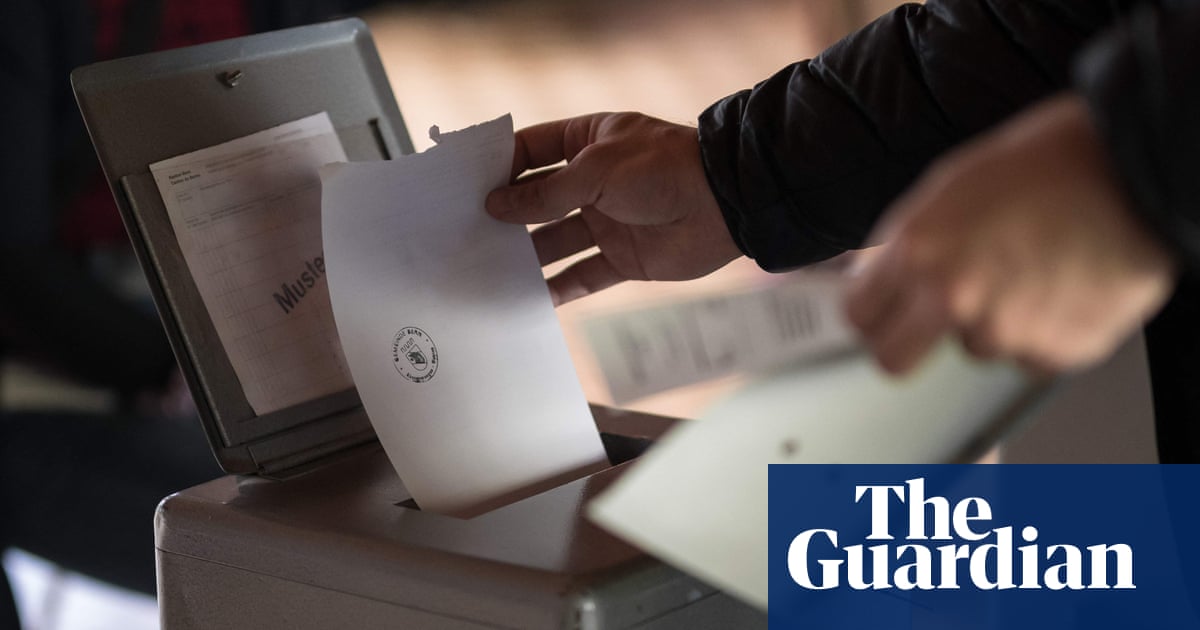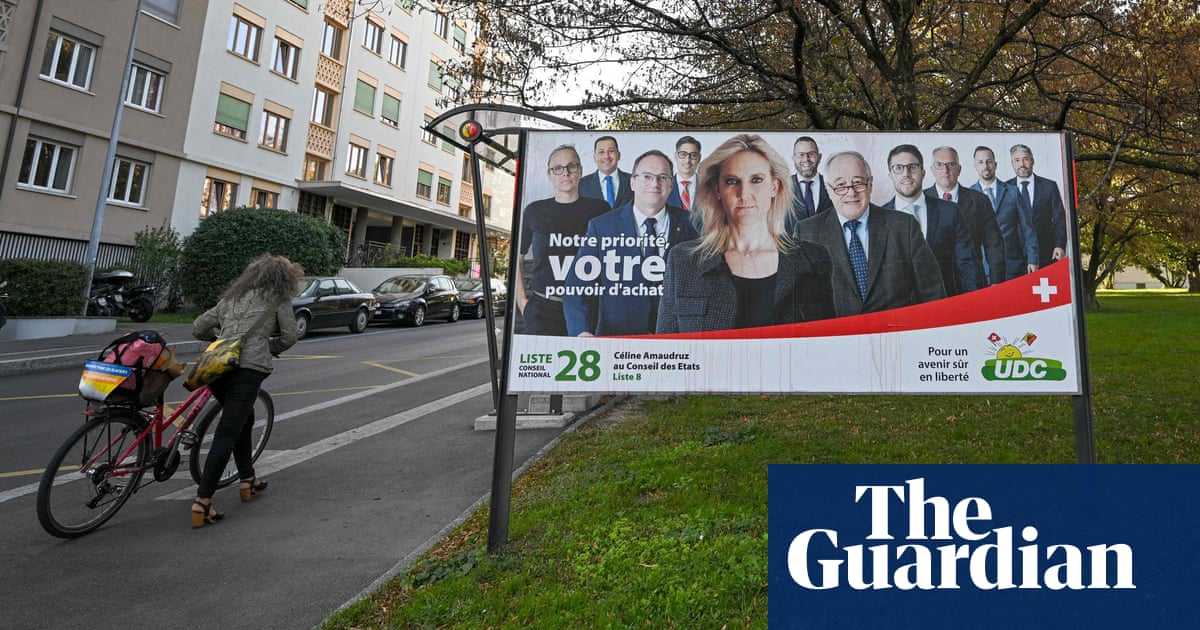
The rightwing populist Swiss People’s party (SVP) was set to further strengthen its position as the largest political force in parliament, exit polls have suggested, as voters appeared to back the party’s hardline stance against mass migration and what it called “woke madness”.
Public broadcaster SSR said the SVP was on track to receive 29% of the vote, an increase of nearly 3.5 percentage points over its 2019 results.
The Greens, who in 2019 made historic gains, were expected to see their support sink to about 9%, down from 13.2%.
Market research group GFS Bern, which conducted the main polling throughout the election campaign, said it expected the leftwing Social Democrats to capture 17% of the votes while the centre-right party, The Centre, and the rightwing party, called FDP.The Liberals, were expected to capture about 15% each.
The exit polls suggest that despite Switzerland’s high proportion of foreign residents and its status as one of the world’s richest countries, SVP’s stark warnings against “mass immigration” had resonated with Swiss nationals.
Among the party’s proposals was a bid to cap the country’s population, now at 8.8 million, to 10 million until 2050, citing concerns over the protection of nature and overstretched infrastructure.
The attacks on migration have long been a staple for the SVP, which for two decades has ranked as the largest faction in parliament. This time around, the Federal Commission Against Racism party accused the SVP of running a “xenophobic” campaign following social media adverts that sought to stoke fears about migrants.
The posts showed bloodied knives, hooded criminals, bruised faces and frightened women, accompanied by the question of whether this could be the “new normal”.
SVP’s campaign also sought to mine the culture wars, with vows to tackle “cancel culture” and combat what it described as “woke madness”.
The approach was captured by the SVP youth wing in a recent social media post. “Drag queens, antifas and climate activists are all going to vote!,” it wrote earlier this month. “At the polls, they could ruin Switzerland and our society. We won’t let them!”
About a quarter of Switzerland’s residents hail from outside the country, with nationals from Italy, Germany, Portugal and France ranking among the largest migrant communities. Only Swiss nationals, however, can vote in federal elections.
The SVP – which is strongly anti-EU – also called for Switzerland to strengthen its commitment to neutrality, in line with its view that the country went too far in matching the EU’s sanctions on Russia following its invasion of Ukraine. Switzerland is not a member of the EU.
Thomas Aeschi, head of the SVP parliamentary group, told the AFP news agency that the SVP “wants good relations with the European Union but what we don’t want is an agreement where Switzerland must do what the EU says”.
Analysts predicted that the result would not lead to a significant shift in Switzerland’s government, known as the Federal Council, as the seven cabinet positions are divided among the four largest parties. The newly elected parliamentarians will choose the seven members of the government in mid-December.
Reto Foellmi, an economics professor at the University of St Gallen, said that the impact of Sunday’s election would probably instead be felt in the tone and focus of the country’s political debate.
“On climate change, the government and the parliament will take the foot off the gas … and with migration the tone will get harder,” he said earlier this week.
The exit polls suggested that the Swiss election will add to the far-right gains being seen across Europe. Italy’s prime minister, Giorgia Meloni, hails from a party with neofascist roots, while the far-right Alternative für Deutschland party recently won its first district council election. In Austria, the anti-immigrant Freedom party is topping polls ahead of next year’s election.
In Finland, the far right is part of the new coalition government while, in Sweden, it is propping up the government in exchange for key policy concessions.












